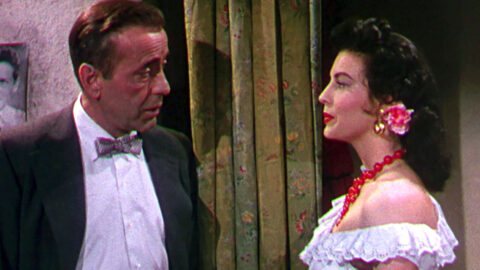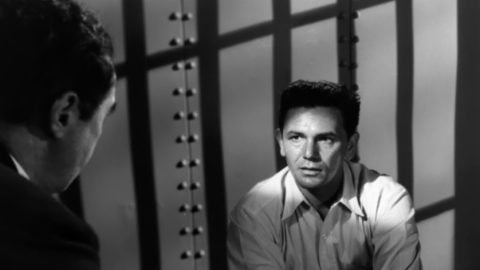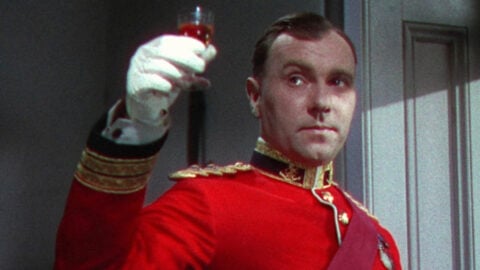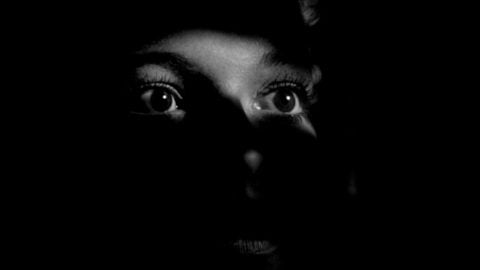TCM Diary: Wartime England
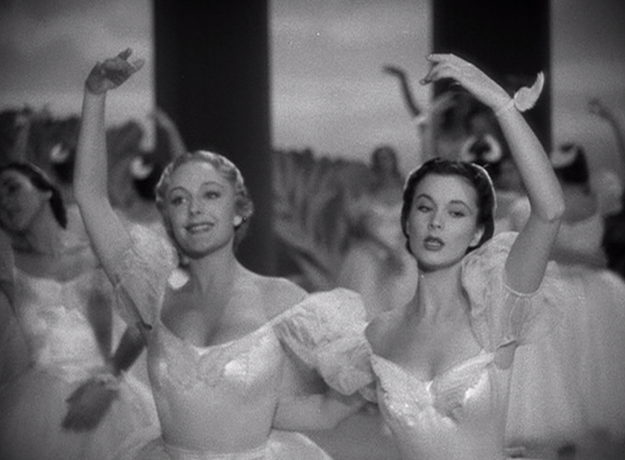
Waterloo Bridge
Sidney Franklin had never set foot in England in 1940, but four years later he’d produced a trio of films that collectively comprise Hollywood’s take on Britain in wartime. Featuring little combat and even less location footage, these backlot creations—Waterloo Bridge (1940), Mrs. Miniver (1942), and The White Cliffs of Dover (1944), as well as the post-WW1 melodrama Random Harvest (1942)—address what Franklin, a former director, saw as the “quaintness and charm” of Great Britain, and the effect of two world wars on that nation’s morale and its citizens exempt from combat.
More than any other studio, MGM is known for its smoothly professional, lavishly appointed product: so often is “glossy” used as a descriptor that one would think MGM was the parent company of Kinko’s. But while this conceptual triptych bears the distinctive finesse of its brand—and of Franklin, who in his 25 years behind the camera was renowned for tasteful prestige fare like The Good Earth—the grim realities of loneliness, material shortages, and perpetual fear resonate throughout. Perhaps most unexpected is the placement at the center of each film of a strong, resourceful woman who endures and sacrifices at least as much as the soldiers at the front. Certainly no two words better evoke wartime maternalism than “Mrs. Miniver,” nor has any performer surpassed Vivien Leigh, Greer Garson, or Irene Dunne at personifying homefront fortitude.
When Leigh began work on Waterloo Bridge, she had just wrapped Gone with the Wind, bequeathing to posterity a definitive portrait of American womanhood in a time of conflict. Rather than reprise her incendiary Scarlett O’Hara, Leigh (who was born in British India to English parents) changed modes completely for Myra Lester—a sheltered ballerina who meets Scottish captain Roy Cronin (Robert Taylor) on the titular platform during an air raid, leading to whirlwind romance. She initially inhabits all the virtues associated with the English rose archetype; Nebraska-born Taylor makes no attempt at a highland brogue, but he’s dynamic and winning in a role that keeps him fundamentally blind to the war’s toll on Myra. Years later, both actors would cite Waterloo Bridge as their favorite film.
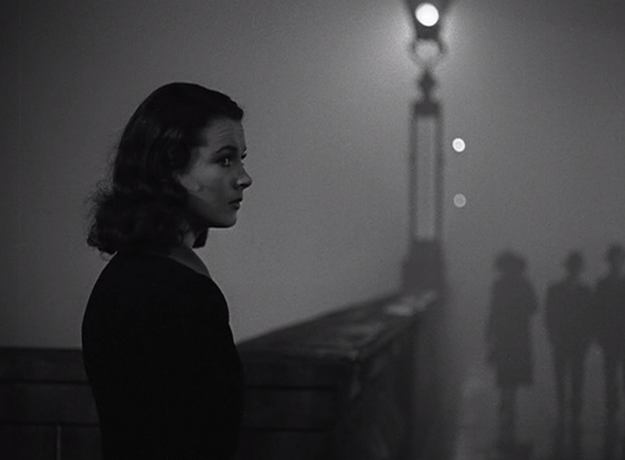
Waterloo Bridge
The story begins at the outset of World War II, as middle-aged Roy, now a colonel, pauses on Waterloo Bridge to recall his liaison with Myra in what was then known as the Great War. Such framing devices are seldom worth the bother of aging the stars, but this one lends the film time-capsule significance: released in May 1940 amid the German invasion of France, it was among the first Hollywood films to incorporate the European conflict into its narrative, and its opening statement, made over loudspeaker to an assembly of Londoners, may have sparked American viewers’ first awareness of nightly blackouts, air raid shelters, and gas masks.
The war expedites their love affair, as Roy has only a few days in London before deploying to the front, but it also underscores their differences: he believes the nearness of death makes human beings feel more alive, while she wonders why mass murder is necessary to remind people of life’s preciousness. Their thwarted plan to marry leads both to realize their preconceptions. While he finds the excitement and glory he sought in battle, she bears the brunt of “this hateful war,” losing her place in the dance troupe, her health, and ultimately her self-respect, as she and her comrade Kitty (Virginia Field, working wonders with a supporting role) are forced into prostitution to survive.
The director of Waterloo Bridge, Mervyn LeRoy, began his career like Franklin in the silent era, so he intuitively permits close-ups of his stars (in astonishing emotional harmony) and scoring to tell the story of their love. Their first and only date, at the Candlelight Club—a dimly lit dance hall for servicemen—features source and incidental music as diverse as “It’s a Long Way to Tipperary” and themes from Tchaikovsky’s Swan Lake to suggest how quickly feelings and fortunes change with so much hanging in the balance. The night ends as Roy and Myra dance longingly to “Auld Lang Syne,” with members of the band snuffing their candles one-by-one and taking their leave, until only the focal pair remain on the floor, embracing in near-silhouette. No words are necessary: with facial expressions and body language, Taylor and especially Leigh impart their yearning for connection, for sanity, for permanence—qualities denied them by a world upside down—and the melody asserts its almost unbearable poignancy, marking the passage of time and the lives and loves lost in its progression.
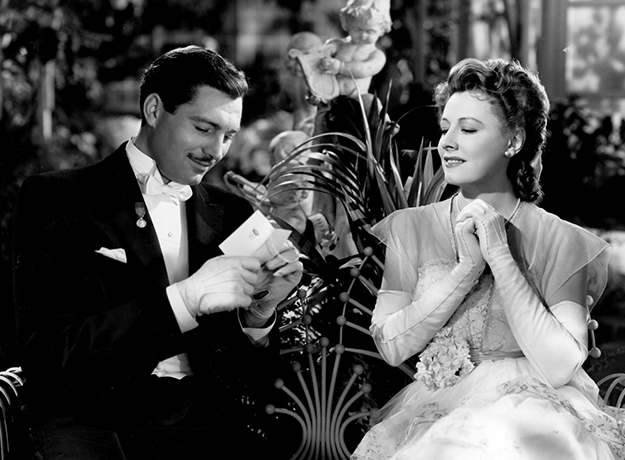
The White Cliffs of Dover
While the experiences of Myra and Roy are universally accessible, they’re embroidered with details specific to the U.K. in the early 20th century. Roy’s commanding officer, when petitioned to approve their union, asks if Myra was ever presented at court; Roy’s uncle (who else but C. Aubrey Smith) speaks out against “correct marriages” among the aristocracy. Brimming with kindness beneath his patrician reserve, Smith contributes a vital strain of Englishness to the proceedings, as do Lucille Watson as Roy’s mother (with the same mix of strength and compassion she brought to another wartime matriarch, in Watch on the Rhine) and especially Field, who traces nearly as steep an arc as Leigh’s. (A supporting actress nomination was deserved, though voters apparently had room for just one sympathetic streetwalker that year, Primrose Path’s Marjorie Rambeau.)
For all the studio varnish and illusions (such as the heavy fog to render the sets imprecise), Waterloo’s screenplay (based on Universal’s 1931 film of the same name, itself drawn from Robert E. Sherwood’s play) does not efface the hunger and suffering of soldiers’ girls without means, who are disparagingly referred to as “camp followers.” Lines like “What difference does it make as long as we live?” and “I guess there are no rules now” convey the revised morality of a world in tumult. The devastating finale caps a film which, like war itself, is constituted of inexorable tragedy interspersed with moments of joy—short-lived abeyances that only make reality’s resurgence more painful.
Yet as Franklin realized even from his vantage in Hollywood, Great Britain is synonymous with resilience. Even the titles of his films—Waterloo Bridge, The White Cliffs of Dover—suggest centuries of tradition and defiance of subjugation, and stir us even if we’ve never trod English soil. In White Cliffs, these feelings swell within American Susan Dunn (Irene Dunne) on her first visit to the continent, and multiply when she weds Sir John Ashwood (Alan Marshal), a baronet with a sense of responsibility as ingrained as his family obligations (Susan is horrified to learn that by tradition every firstborn son is named Percy).
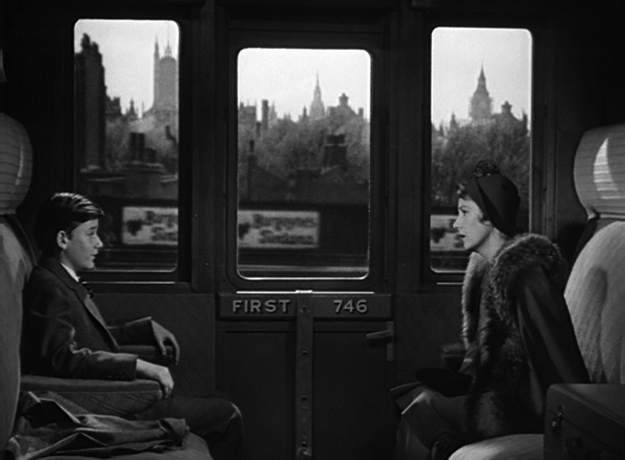
The White Cliffs of Dover
As in Waterloo Bridge, the Second World War is used to frame the First, as an aged survivor recalls a life-altering encounter on the eve of their leaving Britain. Susan, of course, could never tear herself away; Sir John’s exhibition of “his” England has inflamed all her fantasies (and the American public’s) of the picturesque, abiding island nation—a place of rolling hills, ancestral manors, and benevolent ghosts. By the time she compares the man to the country (“a bit set in her ways, a bit sure of herself, but very, very nice”), it’s clear that both have won her heart.
Susan remains resolutely American in her fiber, though, and the main discord before the outbreak of war involves her taking umbrage at backhanded compliments from snooty Britishers praising her lack of Yankee vulgarity. The later discord emanates from her resistance to what her adopted countrymen (played by Hollywood’s de facto colony of English expats: Dame May Whitty, Gladys Cooper, and Smith again) see as her duty—namely, why she must forfeit husband and son to the same merciless army. In Susan’s ambivalence, Dunne shades a masterful portrait of dual identity, of two irreconcilable halves occupying one embattled body.
In the end, as she prepares to surrender everything to England and war—an adopted nation and a foreign notion—the extent of her sacrifice obscures the propagandistic value (directed by Clarence Brown). Yet even with her life in shambles, she would doubtless uphold the words written by Alice Duer Miller in the poem—or “novel in verse”—that inspired the film:
I have loved England, dearly and deeply,
Since that first morning, shining and pure,
The white cliffs of Dover I saw rising steeply
Out of the sea that once made her secure.
I had no thought then of husband or lover,
I was a traveller, the guest of a week;
Yet when they pointed: the white cliffs of Dover,”
Startled I found there were tears on my cheek.
White Cliffs and Waterloo Bridge screen March 2 on TCM.
Steven Mears received his MA in film from Columbia University, where he wrote a thesis on depictions of old age in American cinema.



